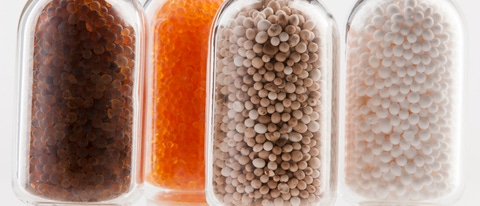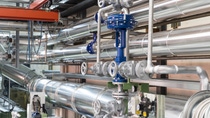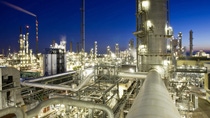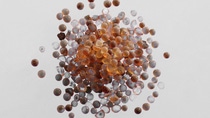Adsorption is the accumulation of atoms or molecules on the surface of a material. This process creates a film of the adsorbate on the adsorbent's surface. It is different from absorption, in which a substance diffuses into a liquid or solid to form a solution. The term sorption encompasses both processes, while desorption is the reverse process.
Adsorbents are used usually in the form of spherical pellets, rods, moldings, or monoliths with hydrodynamic diameters between 0.5 and 10 mm. They must have high abrasion resistance, high thermal stability and small pore diameters, which results in higher exposed surface area and hence high surface capacity for adsorption. The adsorbents must also have a distinct pore structure which enables fast transport of targeted molecules.
At BASF, we make adsorbents differently. The difference comes from not only making our adsorbents differently, it comes from thinking differently.
BASF has led the way in helping businesses and institutions across industries meet and exceed stringent moisture control standards with a variety of superior and unique alumina, desiccant and adsorbent technologies that underscore BASF’s reputation for delivering ingenious answers to tough business challenges. We make adsorbents differently and it is this distinction that sets us apart and has customers seeking us out in the marketplace for their moisture control and purification requirements.






